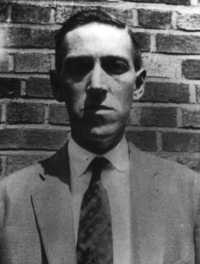I am sorry for your unpleasant experience, but glad that you decided to share it. We tend to think of ourselves as having one body, one mind, one brain, one soul, and understand these things as having a wholeness and singularity that is not necessarily valid -- as you discovered. We see our "self" as singular, so when people talk about a person with a multiple personality disorder, they ask, "But which one is the 'self'?" As you discovered, both halves can be your "self", and yes that would be disturbing. I certainly don't envy you the experience, but it does bring new meaning to the phrase, "I was beside myself".CIN wrote: ↑May 5th, 2022, 6:11 am In 2006, for about half an hour, I had the odd and rather unpleasant experience of having two conscious selves in my head at the same time instead of the usual one. The most likely explanation, given the surrounding circumstances, is that each hemisphere of my brain was generating its own conscious self. This strongly suggests to me that consciousness is created by the brain, so that when the brain dies, consciousness must cease. It would take a lot to persuade me, in the light of this experience, that reincarnation or any other kind of survival after death is possible.
I agree that the brain generates consciousness, but what it generates is the rational aspect of mind -- the part of mind that does the thinking, planning, and structuring of our day and our lives. It is what we work with, but is it the self? Not really. The self is difficult to understand and rooted in the unconscious. Probably, the easiest way to understand this is to say that the brain is like a mirror that reflects some of the unconscious, and it reflects the "self". When I look in a mirror, I see myself; when my brain looks in the unconscious, it sees myself, but both are really reflections. Whatever happened to your brain, it caused a fracture, so that you experienced two selves, which was fortunately temporary.
When the body dies, the brain dies -- I think it takes six minutes -- then the rational aspect of mind starts to break down, much like the body starts to break down. How long does it take the body to break down? Hours? Days? Weeks? Years? It depends upon the circumstances of death, and how long the rational mind or self continues also depends upon bonding and the circumstance surrounding the death. This is why I say that death is a process, not an event. Think of a fire. You can put it out, and even though it is dead, it can hold heat for quite a while depending on how it was put out. So you can think of the body as holding some of the unconscious aspect of its self for quite some time. This is where ghost stories, NDE's, and reincarnation comes from. If you think about it, you will realize that NDE experiences and ghost stories happen very close to the time of death. Reincarnation is much the same in that it is temporary.
Most children, who remember past lives, forget the memories by seven or eight years old because this is the time that they fully develop a rational aspect of mind for themselves. They forget the prior lives, although I have been told that some memories can be brought back through hypnosis. If anyone wants to really understand this, I would recommend studying the unconscious, especially Jung's collective unconscious, and seriously study emotion -- not how it feels, but how it works. Bonding is an important aspect of reincarnation and bonding works through the unconscious and emotion.
If you study Dr. Stevenson's work, you will find that the aspects of consciousness that reincarnate are the ones that are part of the unconscious mind -- not the whole rational mind. The things that they remember are related to self, bonding, characteristics of their personality, preferences, people that they loved, home, work, or all the things that would relate to the unconscious. They often have some memories, but these are related to the above, not what they paid in taxes last year. There is no wholeness like one would expect in a rational aspect of mind. There is only the old memories and the new experiences to create a new person.
Gee








































